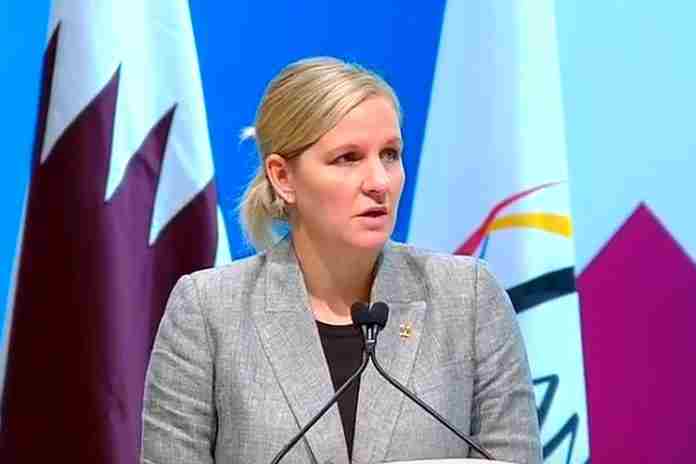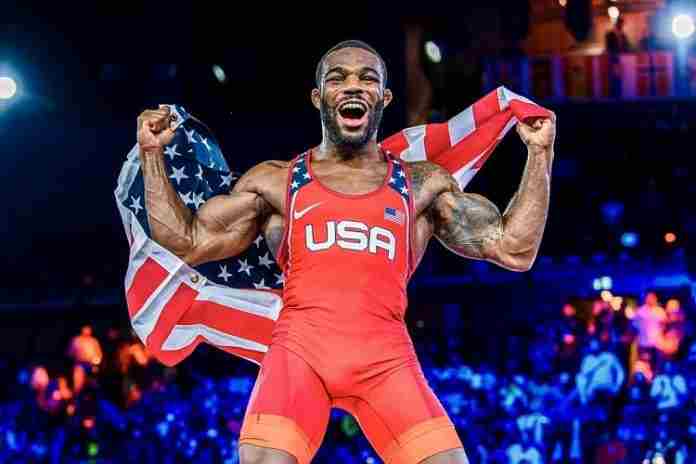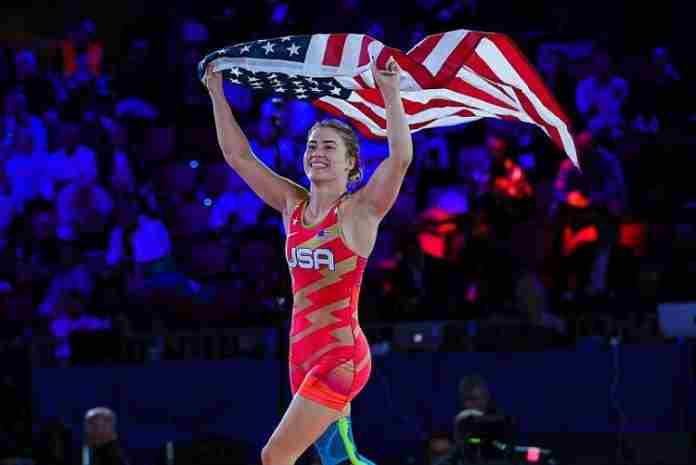While hardly unexpected, the choice of Zimbabwe’s Kirsty Coventry as the head of the International Olympic Committee’s Coordination Commission for the Games of the XXXV Olympiad unmistakably propels her as a candidate to become IOC President in 2025.
The IOC announced Thursday that Coventry, 38, will chair the 12-member Coordination Commission for the Brisbane Games, strongly reflecting the desires of current President Thomas Bach (GER), including, but not limited to:
● Eight of the 12 members of the Commission are women, continuing Bach’s efforts to include more and more women on a path to leadership in the IOC.
● The selections continue the engagement of two important women whose terms of service on the IOC Executive Board were concluded after the Tokyo Games: Coventry and senior U.S. member Anita DeFrantz, who will serve as Vice Chair.
● Bach said: “Kirsty Coventry is leading an exciting new generation of IOC members in this Commission. As a double Olympic gold medallist and a former IOC Executive Board member, she has all the experience for this important task.”
The Brisbane Coordination Commission is a high-profile assignment that will not have an enormous amount of work to do prior to 2025, as the vast majority of Brisbane’s venues are already in place. But the oversight task of ensuring that the organizing committee is properly formed and the government’s development plans surrounding the Games do not interfere with the staging of the event will be critical to the success of the 2032 Games.
Why is 2025 so important? Because that’s when Bach’s 12-year term as President will end. At 71, he will be subject to term limits, and will turn over the reins of the most important organization in world sport to someone else.
Coventry is certainly not the only possible candidate. But her election would check a lot of boxes that Bach and others would like to see filled:
● First woman President of the IOC
● First IOC President from Africa
(Let us not forget that the IOC’s first major event in Africa will be the Youth Olympic Games in Dakar (SEN) in 2026.)
● First individual Olympic gold medalist to be IOC President
(She won the 200 m Backstroke at Athens 2004 and Beijing 2008, along with five other medals in swimming, also in the 100 m Back and 200 m Medley. She competed in five Games from 2000-16. Bach won a Team gold in fencing in Montreal in 1976; no prior IOC President had won an Olympic medal.)
● First IOC President who was also a full-time government minister
(Coventry was appointed Minister for Youth, Sports, Arts and Recreation in 2018, but is an independent, not affiliated with any political party.)
● First Chair of the IOC Athletes’ Commission to become IOC President
(Bach was a member of the first IOC Athletes’ Commission in 1981, but was never its chair. Coventry joined the IOC as a member of the Athletes’ Commission in 2013, became chair in 2018 and was elected as an individual IOC member in 2021.)
Coventry, born in Harare in 1983, would be 42 or 43 in 2025 and would become the touchpoint for a worldwide youth movement in sports administration in the National Olympic Committees and International Federations. Really? Yes.
Consider these comments, which very much reflect Bach’s thinking and the IOC’s current policy direction – in a slightly different context – from IOC Sports Director Kit McConnell (NZL) during a news conference on 26 July during the Tokyo Games:
“I wanted to highlight also why gender equality for us is not just about numbers and percentages. We know for every opportunity we give to a female event in the Olympic program, this often leads to the same event being added to other multi-sport Games, to being further promoted in World Championships, World Cup events in the IF’s own programs, so it really has a ripple effect beyond the Olympic Games as well.
“And equally, for every additional female quota place we bring into the Olympic Games we often see that being reflected also in increased quotas outside the Games. [So] that leads to a lot of investment, a lot of development around the world in different countries, through National Olympic Committees, through sport ministries, through others who invest in female athletes to go for that qualification place, to go into a qualification process to qualify to the Games.
“So there is really a positive ripple effect that amplifies the impact for every single one of those additional quota places that we create for women athletes and that’s why it’s so important to reach the numbers we have here in Tokyo and reach that absolute equality in terms of numbers of athletes in Paris as well. So it has a wider impact than just the Olympic Games, and why it’s so important that we lead on that change as well.”
This is why Coventry’s candidature for 2025 is already being widely talked about and will be accelerated by Thursday’s appointment.
She is certainly not the only possibility being discussed for the IOC Presidency in 2025 and even with Bach’s endorsement – whether explicit or implicit – she is no shoo-in as yet. Others being whispered about include IOC members Nicole Hoervertsz (ARU), a 1984 Olympic in Artistic Swimming, a member of the Aruban government and the chair of the Los Angeles 2028 Coordination Commission; Pierre-Olivier Beckers-Vieujant (BEL), head of the Paris 2024 Coordination Commission and former chief executive of the massive Delhaize Belgium supermarket chain, and the highly-respected Federation Equestre Internationale President Ingmar de Vos (BEL), among others.
To Coventry’s credit, her experience under pressure – something she was already used to as a politician in her home country – was brilliantly displayed in her leadership within the Athletes’ Commission, in news conferences and private meetings around the review of the IOC’s protest guidelines in Rule 50.2 of the Olympic Charter. She led a months-long process that sampled worldwide opinions, engaged thousands of athletes in direct polling and then delivered a set of recommendations which surprised everyone by actually enlarging the in-Games opportunity for “athlete expression” during pre-event introductions.
For whatever the reasons, the expected outpouring of protests in Tokyo didn’t happen. Give Coventry credit for a calm demeanor, willingness to tackle what appeared to be a no-win situation and a result which was more liberal than expected but retained the core dignity around the Games ceremonies.
Coventry has a lot on her plate, beyond her ministerial and Olympic obligations, as she is married and has a two-year-old son. But her IOC star is rising and Thursday’s appointment will continue the spotlight on her.
Rich Perelman
Editor
You can receive our exclusive TSX Report by e-mail by clicking here. You can also refer a friend by clicking here, and can donate here to keep this site going.
For our 743-event International Sports Calendar for 2021 and beyond, by date and by sport, click here!

























